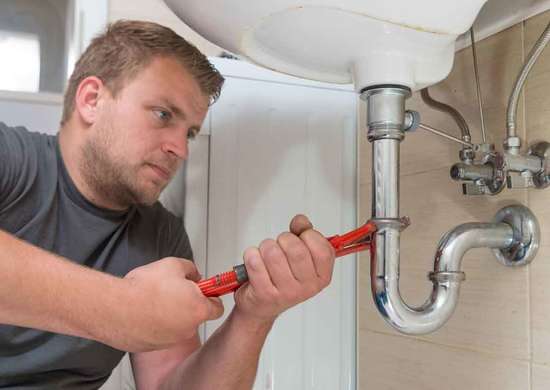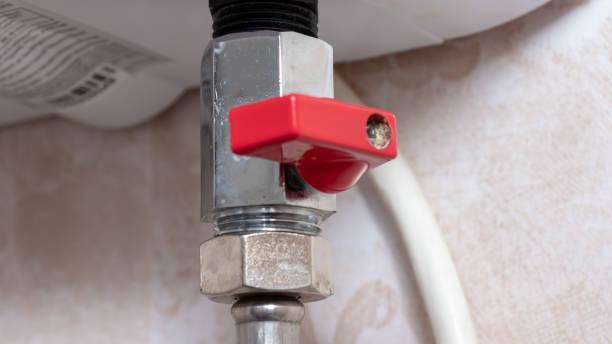If your boiler is leaking water then it likely needs the urgent attention of a heating engineer. Even if you’re one of those people who likes to fix things yourself, tinkering around with a boiler in an attempt to save money is likely going to be a false economy.
If you’ve happened upon this article then the chances are: your boiler is leaking. Whether it’s brown water or clean water, it’s worth getting it fixed ASAP.
Here we look at the most common reasons, and why you might want to arrange boiler insurance.
So, why is my boiler leaking water?
It’s no surprise to learn that boilers and heating systems today rely on water to function properly. Indeed, most heating engineers are also semi qualified plumbers.
There are several possibly reasons why your boiler is leaking. These include:
Corroded pipes
Corroded pipes or tanks could eventually begin to weaken, which may result in water escaping over time. Should the corrosion not have spread further than a single pipe or valve then simply replacing the corroded part will resolve the issue.
If the corrosion has spread into the rest of the system then it is sadly probably beyond repair and could mean that you’ll need to replace your entire boiler.
So don’t delay in getting it fixed.
Pressure
If your boiler pressure is too high then this could result in the boiler leaking water, this is because the boiler needs to let out some of the excess pressure to avoid the unit imploding.
You can tell if your boiler pressure is too high if the needle on the pressure gauge is pointing anywhere above 2 (generally speaking). Now, if you think that your boiler pressure is too high, you should really (urgently!) reduce the pressure. The correct boiler pressure is between 1 and 2 on the pressure gauge.
To release the pressure, you can bleed a radiator. There are other ways of doing it – but this is the best and easiest way for the amateur homeowner!
Loose ends
If you have a joint that is loose then it’ll only get worse over time. Pipes expand and contract and the connections (joins) are often the points of failure. One easy way to fix this is to check that all the joins are secure – if not, you can tighten them up yourself with a screwdriver in many cases. Tightening the fittings may not be a permanent solution though; often they will come loose again and you may need the help of a qualified heating engineer.

General Wear and Tear
I know, that phrase is likely to cause irritation. It’s a cop-out for a lot of insurers too. But sadly not all boilers are made equal – and they do get weaker and weaker over time. Hopefully, your boiler will last for at least twenty years – but don’t risk it. If your boiler breaks, can you afford to have it fixed? If you’re unsure then compare the cost of boiler insurance and breakdown with us.
Start comparing boiler cover now.
Addressing Potential Damage:
A leaking boiler can cause significant damage, affecting not only the boiler itself but also your home and belongings. The risk of water seeping into electrical components and causing short circuits is real. Swift action is essential to minimize damage and potential safety hazards.
Preventative Measures:
To avoid boiler leaks and their consequences, take proactive steps:
- Schedule an annual boiler service to catch issues early.
- Consider boiler insurance to protect against unforeseen breakdowns.
- Install leak detectors or water alarms for added safety.
- Practice regular maintenance to prolong your boiler’s life.
Boiler leaks demand immediate attention to safeguard your home and pocket from expensive damages.
Tackling issues such as corroded parts, high pressure, and loose connections can prevent leaks and ensure the efficient functioning of your central heating system. Investing in an annual service and boiler insurance can provide you with long-term benefits and peace of mind. So, don’t delay, take action now to maintain a safe and comfortable home throughout the seasons.
FAQs
What happens if I don’t fix my leaking boiler?
Although modern boilers have plenty of safety features like cut-outs and override protection, there’s still a risk that a broken boiler can cause damage to your house. Everything from causing serious water damage to your floor, to dirty smoke being puffed all over your patio. It’s probably not worth the risk – and don’t forget, it may also invalidate your home insurance if you have a knowingly faulty appliance and don’t have it fixed.
So in short, a leaking boiler has the potential to cause lots of damage, not just to the boiler itself but your house and its contents too. It’s fairly likely that water will be leaking onto electrical components that could end up short circuiting. Depending on where your boiler is and how far the water has spread, it could potentially cause damage to carpets, furniture and other belongings. A very costly lesson as seen on this Reddit thread!
What do I need to do?
The easiest way to prevent water leaking out your boiler is to have an annual service. The costs of doing so may not be as expensive as you think – a typical boiler service will likely cost around £50 – £100. They may also recommend a chemical flush – this isn’t anything to be alarmed about; it’s a standard process.
What is a chemical flush?!
A chemical flush is probably going to be the solution that is recommended by a heating engineer. A chemical boiler flush is a standard process that is usually conducted when a new boiler has been installed. It removes rust and other contaminents inside your system which in turns helps to clean your boiler, pipes & radiators. All of this helps hot water to flow more easily & efficiently, and can also prevent leaking.
